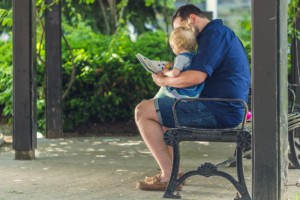 Babies, toddlers, and school age children communicate in many different ways. I have a daughter who talked a mile and minute, while my son was more reserved. Some kids catch on quickly and seem to know more words than most children their age, but others seem to understand just the essentials, such as “no” or “down”. This can make it difficult to identify if speech therapy would be beneficial.
Babies, toddlers, and school age children communicate in many different ways. I have a daughter who talked a mile and minute, while my son was more reserved. Some kids catch on quickly and seem to know more words than most children their age, but others seem to understand just the essentials, such as “no” or “down”. This can make it difficult to identify if speech therapy would be beneficial.
Unfortunately, some parents are apprehensive when it comes to speech therapy, but it is an important tool that gives your child the ability to communicate and express themselves better. It doesn’t mean there is something wrong with your child.
Many parents and caregivers are surprised to find out even babies, as young as three months old can show signs of a communication disorder.
The American Speech Language Hearing Association list what skills your child should know at what age.
Birth – 3 Months
Makes cooing sounds
Cries changes for different needs
Smiles at people
4 – 6 Months
Coos and babbles when playing alone or with you
Makes speech like babbling sounds, like pa, ba, and mi.
Giggles and laughs
Makes sounds when happy or upset
7 Months – 1 Year
Babbles long strings of sounds, like mimi, upup babababa
Uses sounds and gestures to get and keep attention
Points to objects and shows them to others
Uses gestures like waving bye, reaching for “up”, and shaking his head no.
Imitates different speech sounds.
Says 1 to 2 words, like hi, dog, dada, mama, or uh-oh.
2 to 3 Years
Has a word for almost everything.
Talks about things that are not in the room
Uses k, g, f, t, d, and n in words.
Uses two or three words to talk about and ask for things.
People who know your child can understand him.
Put 3 words together to talk about things. May repeat some words and sounds.
How can you help your baby learn communication skills?
Teach your baby to talk. Talk, pause, and wait for your baby to coo or smile. Talk again. This teaches turn taking that is needed for conversation.
Talk as much as possible during the day and respond to your baby’s communication attempts by looking at her and imitating the sounds she makes.
Mirror your baby’s laughter and facial expressions.
Talk about what you are doing, such as dressing, bathing, and feeding.
Talk about where you are going, what you will do one you get there, and who and what you’ll see.
Teach animal sounds, A cow says, “moo”.
If you are concerned your child is not meeting the milestones listed above, a speech therapist can help
First Words Speech Therapy offers personalized care to meet your child’s speech and language needs. As a mobile service provider, we are able to render therapy at the child’s home, daycare, charter/private school, or in the community.


